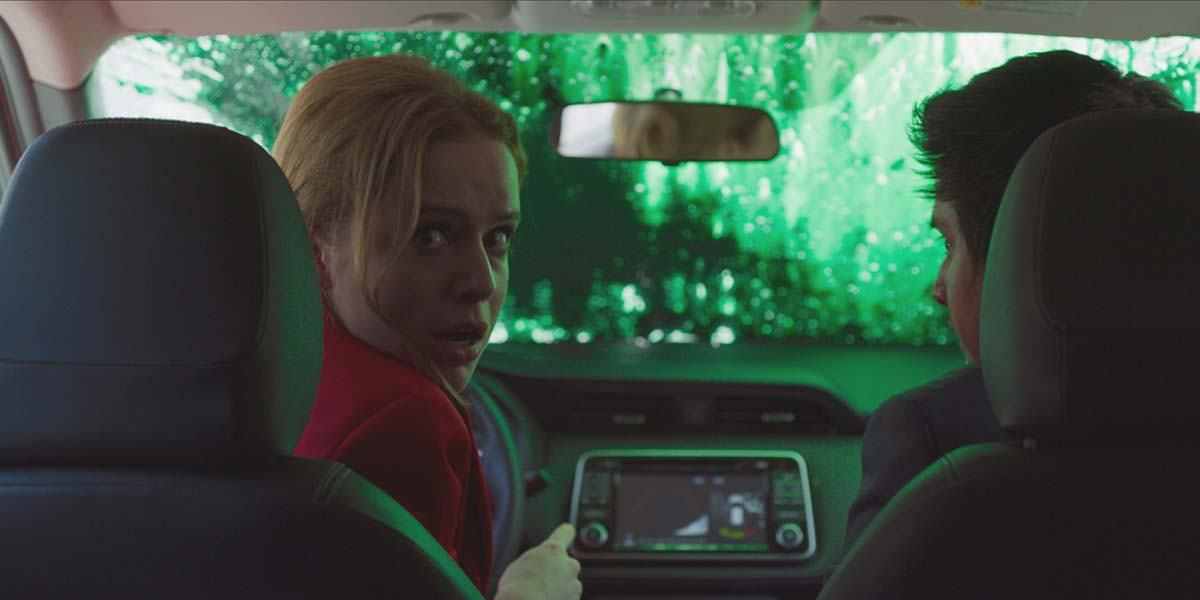Michel Franco has made a name for himself over the years with Daniel and Ana, After Lucia, Chronic, and April’s Daughter, all of which can be described as miserablist torture tests for audiences. Taking a page from Michael Haneke but only possessing a fraction of the depth, Franco has somehow tormented his way upward in the festival circuit, earning accolades and awards (including a Best Screenplay win at Cannes). Now he returns with New Order, by far his most ambitious and political effort, and it comes as no surprise that a director who peddles in extremes provides both his best and worst work to date.
The film opens at a wedding for a wealthy family, taking place at a house that coincidentally shares some resemblance to the mansion in Bong Joon-ho’s Parasite. A quick series of exchanges show the bride Marianne (Naian Gonzalez Norvind), her well-connected father, greedy mother, and a bunch of cash being exchanged as wedding gifts. But there are some wrinkles in the festivities; protests against the ruling class are going on across the city, streets are closing down, and at one point the home’s tap water turns into the same green color as the symbol for the protest movement.
New Order’s first half is by far the best thing Franco has ever done. By staying at the wedding party and only hinting at the surrounding chaos, the film builds a palpable tension that’s reminiscent of the unbearable opening act of Haneke’s Funny Games. Class lines are quickly drawn and then emphasized upon the arrival of a former houseworker, who needs money for his wife’s heart surgery but gets accused of trying to scam the family. Marianne is the only one who appears to have any sympathy, sneaking off in her car to pay for the surgery with her credit card. It’s around this point that Franco finally lets loose, with Marianne driving into the heart of the protests and the wedding party getting overrun by unwanted guests after she leaves. Just on its own, this first section of New Order is masterful in how it builds a populist powderkeg and lets it explode.
But this is a Michel Franco film, and in the aftermath of the first half’s carnage he goes back to his old, vile bag of tricks. It’s implied that a coup d’etat results from the protests, and a group of soldiers kidnaps Marianne along with dozens of other rich people to get their families to pay a ransom. At the same time, the city goes under a lockdown where the army brutally oppresses the lower classes and Marianne’s family gets to hide out in a swanky new home.
There’s an obvious point being made here about class disparity leading to violence and authoritarianism, which is a fine point to make. The problem is that Franco doesn’t know how to express himself in any way other than sadism, so we’re treated to scenes of soldiers raping women and a man getting sodomized with a cattle prod, along with plenty of people getting executed. The cruelty is the point here, but it doesn’t have to be. All it does is reduce everything down to a more schematic context, with characters functioning as little more than fodder for the meat grinder of Franco’s own design. At a certain point one has to wonder if Franco enjoys cranking the handle, or if he just gets a kick out of convincing everyone how important that role is.
So New Order winds up being a bit of a mixed bag. Franco’s portrayal of society falling apart via rich partygoers receiving a hard dose of reality is effective, but it requires trudging through a back half that amounts to Franco rubbing people’s faces in his own mess. The relevance of Franco’s message is undeniable, but his handling of it is reckless and just muddles his themes in the pursuit of appearing intellectual. It’s easy to imagine New Order striking a chord with people given how much it touches on major political issues that have come to define this period of time. Hopefully people who choose to endure Franco’s latest bout won’t end up confusing his excessive brutality with something powerful and necessary.
New Order screened at Toronto International Film Festival.

